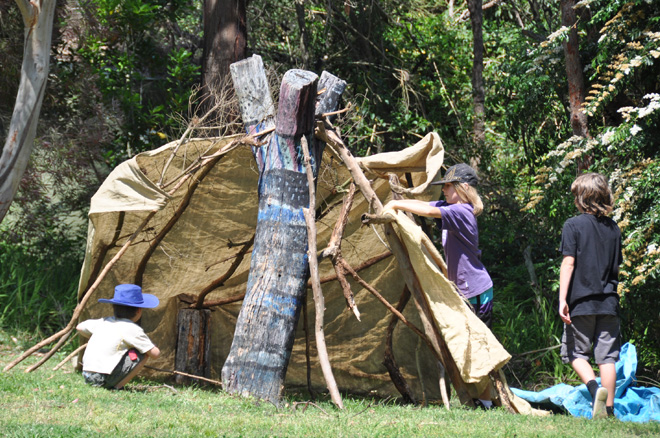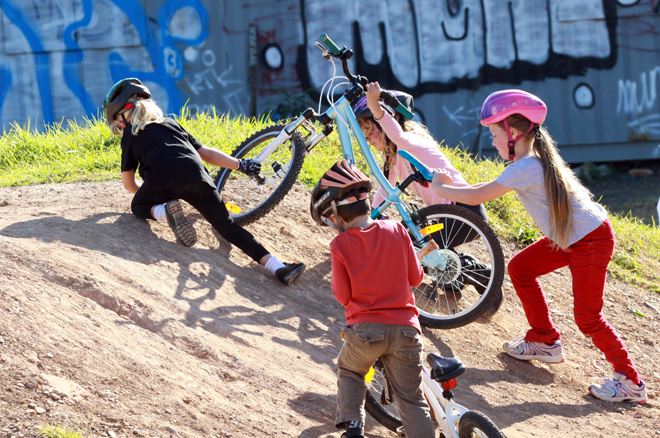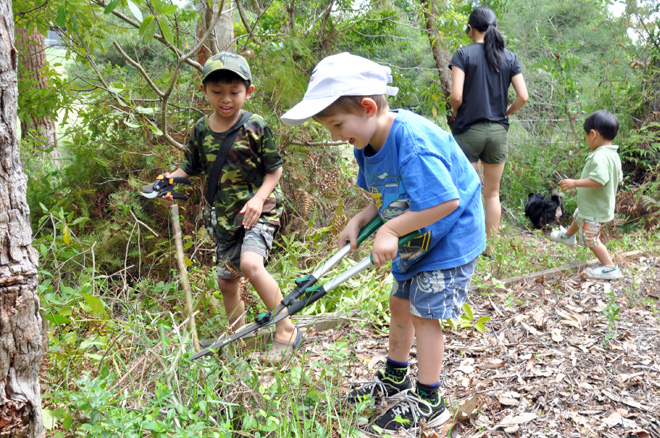Relationships
Democracy at Kinma
"The future wellbeing of human society and its environment
depends upon the quality of peoples' interactions with each other"
- p7 HSIE document '98 - NSW Board of Studies Syllabus.
More than any other skill, the building of genuine relationships with others; those with similar and dissimilar values, is vital for our children. Communication - incorporating social justice, inter-cultural understanding and democratic process - are at the heart of this process.
At Kinma School we believe the above statement and have immersed our students in the creation of a democratic based community. In so doing, they live the system in which they are expected to function upon leaving school. They ask challenging questions, foster their curiosity, focus on developing their inquiry learning skills through meaningful experiences by engaging with actual day to day life issues and action their decisions. The school has experimented with the teaching of democracy in various ways over its 40 year history; exploring a range of interesting projects.
The students' experience may be compared to that of any apprentice; simultaneous immersion and formal study.
Students raise a broad range of issues, topics, suggestions for events and problems in class and meetings, eg: excursions, behaviour issues such as bullying and class systems such as clean up. The issues are debated and decisions made..
By empowering students with choice, they become stakeholders in decision making and assume greater responsibility for activities and projects than would otherwise be the case. The students generate units of work in all KLAs. Staff are able to blend the knowledge, skills and values espoused in the syllabi while tailoring learning needs to individuals.
Rules
There are rules at Kinma. The children and teachers meet together to discuss and establish rules. The rules consist of common sense, social and safely rules which help to keep Kinma a happy place. Basic to the happy environment of Kinma is a respect for others, an appreciation of difference and an emphasis on cooperation. Children are encouraged to develop pride in their classroom and the school grounds.

Intrinsic motivation
Intrinsic motivation consists of wanting to do something for its own sake–to read, for example, for the pleasure of reading along. On the other hand, extrinsic motivation exists when the task isn’t quite the main point; one might read in order to receive a reward or a good grade. These two kinds of motivation are not only different, but they tend to be inversely related.
Studies show that the more you reward people for doing something, the greater chance that they will lose interest in whatever they had to do to get the reward. Researchers have found that giving children “positive reinforcement” for being helpful and generous ends up undermining those very behaviors, and encouraging students to improve their grades results in their becoming less interested in a learning system.

Prioritising and self-regulating
In an era of constant distractions in the form of portable play devices, ipods, computers, and televisions for even very young children, it is hardly surprising to discover that children find self regulating and prioritising their time challenging. Kinma is an environment of mutual respect where children gradually learn to respond to limits and to gradually develop the skills needed to set their own limits.
This type of school environment was described well in the Plowden Report ("Children and Their Primary School", published by HM Stationery Office, London, 1967, para. 736).
" . . . for all the appearance of free and easiness, for all the absence of traditional forms of discipline, there is, behind it all, not only a deep understanding of children but careful planning. The two basic assumptions are that children respond in kind to courteous and considerate treatment by adults and that they will work with concentration and diligence at tasks which are suited to their abilities . . . we believe that the atmosphere in a school run on these lines is healthier than one in which discipline is authoritarian. It can foster self-discipline, a sense of responsibility for others in the community and honesty in action and thought. There is for example no reason to cheat or crib. If each child is valued for himself, there is less reason to lie, whether from fear, idleness or the desire for self-aggrandisement."
There is a need to carefully consider the development of each child in terms of behaviour as well as in other areas. At Kinma we aim to develop a child as described above, a child with self-discipline, respect for others and their differences, honest in action and thought, a child who bases interaction on cooperation and who has pride in school, classroom and grounds.
Each child will travel along a developmental path in order to reach the above aims.

Term Dates 2025
- Term 1: Tues 4 February to Fri 11 April
- Term 2: Wed 30 April to Fri 27 June
- Term 3: Wed 23 July to Fri 26 Sep
- Term 4: Wed 15 Oct to Wed 17 Dec
Term Dates 2026
- Term 1: Mon 2 Feb – Thu 2 April
- Term 2: Wed 22 April – Fri 26 June
- Term 3: Wed 22 July – Fri 25 Sep
- Term 4: Wed 14 oct – Wed 16 Dec
Contact us
127 Coolowie Rd,
Terrey Hills NSW 2084
Find us on Google Maps
Primary: +61 2 9450 0738
Preschool: +61 2 9486 3018
Email Kinma

